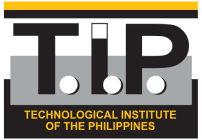

The Computer Science program is focused on the concepts and theories, algorithmic foundations, implementation and application of information and computing solutions.
The program prepares students to be IT professionals and researchers, and to be proficient in designing and developing computing solutions.
Accredited by the Computing Accreditation Commission (CAC) of ABET, https://www.abet.org, under the commission’s General Criteria and Program Criteria for Computer Science and Similarly Named Computing Programs
Accredited by PCS Philippine Information and Computing Accreditation Board (PICAB)
Accredited by Seoul Accord
Recognition
From CHED: Center of Excellence (COE) for Information Technology Education (ITE)
From PACUCOA: Level III First Reaccredited Status in Computer Science
PROGRAM EDUCATIONAL OBJECTIVES
The Computer Science program has adopted the following educational objectives.
Three to five years after graduation, the Computer Science alumni shall:
- have advanced their practice or achievement in the field of Computer Science and/or other endeavors or advocacies supported by their acquired computer science education;
- be globally competitive through
- living by the TIP mission values, pursuing continuing education, and practicing continuous quality improvement in their personal lives;
- continuously scanning, adopting, and building on the best practices in their field.
STUDENT OUTCOMES
For students entering as freshmen for SY 2018-2019, the following SOs apply:
Student outcomes are outcomes (1) through (5) common to Computer Science (CS) and Information Technology (IT). There are separate additional outcomes for CS and IT.
By the time of graduation, students will have an ability to:
T.I.P. SO 1. analyze a complex computing problem and to apply principles of computing and other relevant disciplines to identify solutions.
T.I.P. SO 2. design, implement, and evaluate a computing-based solution to meet a given set of computing requirements in the context of the program’s discipline.
T.I.P. SO 3. communicate effectively in a variety of professional contexts.
T.I.P. SO 4. recognize professional responsibilities and make informed judgments in computing practice based on legal and ethical principles.
T.I.P. SO 5. function effectively as a member or leader of a team engaged in activities appropriate to the program’s discipline.
T.I.P. SO 6. apply computer science theory and software development fundamentals to produce computing-based solutions (CS).




